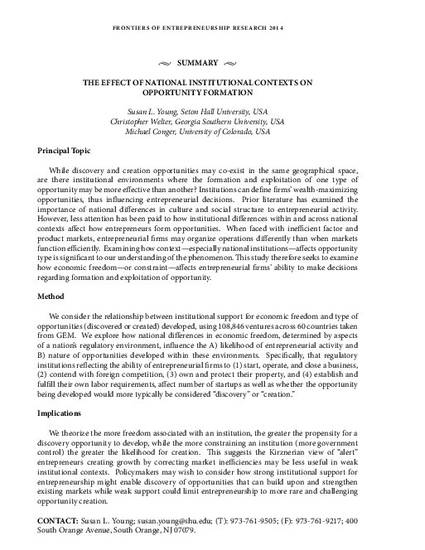
While discovery and creation opportunities may co-exist in the same geographical space, are there institutional environments where the formation and exploitation of one type of opportunity may be more effective than another? Institutions can define firms’ wealth-maximizing opportunities, thus influencing entrepreneurial decisions. Prior literature has examined the importance of national differences in culture and social structure to entrepreneurial activity. However, less attention has been paid to how institutional differences within and across national contexts affect how entrepreneurs form opportunities. When faced with inefficient factor and product markets, entrepreneurial firms may organize operations differently than when markets function efficiently. Examining how context—especially national institutions—affects opportunity type is significant to our understanding of the phenomenon. This study therefore seeks to examine how economic freedom—or constraint—affects entrepreneurial firms’ ability to make decisions regarding formation and exploitation of opportunity.
Available at: http://works.bepress.com/susan-young/2/
